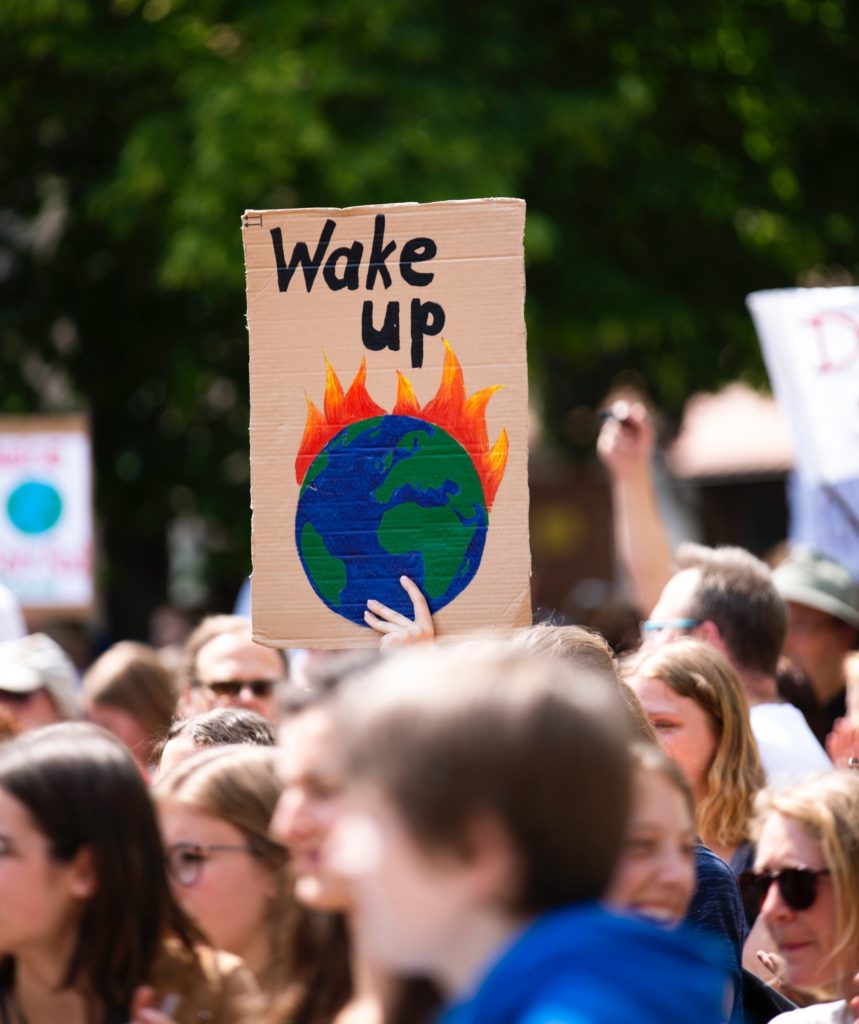As the Covid-19 pandemic continues to cause unprecedented challenges across the globe, young people remain focused on the issue that they still view as the most urgent to their generation: climate change.
The issue of climate change was initially discussed in the 19th century when scientists first conducted experiments on the effects of carbon dioxide in the environment. Today, over 97% of climate scientists believe that “Climate-warming trends over the past century are extremely likely due to human activities.” Public awareness about the negative impact of human-caused climate change emerged in the 1980s, when global temperature began to rise dramatically. Although the harmful effects of climate change were brought into the spotlight, no major actions were taken – the government didn’t see climate change as a short-term problem, and didn’t act forcefully. In fact, the Washington Post reported that over the last 40 years, Congress “has never actually passed any substantial legislation out of both chambers to deal with climate change.”
Disregard for climate change has finally caught up to us. A report published by NASA confirmed that 2010 to 2019 was the hottest decade ever recorded, with temperatures rising rapidly. The United Nations reported that we only have 10 years to prevent irreversible damages to Earth because of climate change. If we don’t act now, the Arctic will lose ice, causing sea-levels to rise. Hurricanes, wildfires, and other natural disasters will happen more frequently and with greater intensity. The World Health Organization estimates that climate change will cause 250,000 deaths per year, and studies show that climate change will cost $8 trillion globally by 2050, as well as cause the displacement of hundreds of millions of people. Millions of people living on the coast are in danger from rising sea-levels, coral reefs will go extinct, water shortages will affect 5 billion people by 2050, and 20 million children will go hungry all because of the climate crisis.
Government inaction on climate change has forced younger generations to protect their future by themselves. According to a recent poll, 56% of Gen Z thinks that their elected officials care “very little, or not at all” about what young people think. Thankfully, young people haven’t given up completely; 64% think that their actions can affect what the government does “moderately or a great deal.” Awareness about the paramount threat of climate change is significantly higher in younger generations compared to older adults. 91% of teens believe in climate change, while only 73% of adults say the same thing.
Instead of relying on the government, we’ve taken matters into our own hands. In 2019, millions of students all over the world participated in protests on government inaction on climate change. Greta Thunberg, the 17-year-old climate activist who helped spark the global movement said, “If no one else will take action, then we will. We demand a safe future. Is that really too much to ask?” The youth-led global movement spread exponentially: 1 in 4 teens have taken part in a walkout or protest on climate change. Generation Z knows that this issue will come to define their generation; a survey of over 10,000 Gen Zers across 22 countries reported that 41% cited global warming as the most important issue facing the world, the highest number on any issue. This increase in youth-led action has emboldened Gen Z around the world. More than 90% of teens believe that young people can make a difference in reversing the harmful effects of climate change.
Gen Z is unified in their actions to save the planet. A recent poll found that 92% of teens are willing to take action against climate change, and this engagement is bipartisan for young generations. By a nearly 2-to-1 margin compared to older adults, young conservatives join with liberals in agreeing that “human activity contributes a great deal to climate change,” and that “the federal government is doing too little to reduce the effects of climate change” – a stark contrast from what many older Republicans believe.
Although the pandemic has stopped all in-person climate protests, Gen Z has continued to speak up through Instagram and TikTok. We have transitioned into reaching our peers and continuing the movements by posting photos on social media of individual, at-home protests. This new format has allowed young people all over the world to continue their efforts and make a difference.
Older generations are leaving behind a damaged climate for us to inherit. We have more at stake, but we’ve never been more unified to face such a menacing problem. We won’t stop fighting to protect the planet, because we can’t; our future and the future of the planet depends on it.

Ian is a dual US/UK citizen who was born in New York City and currently lives in Miami, Florida. He is a rising freshman at Ransom Everglades Upper School, where he plans to be involved in Speech and Debate as well as Student Government. Outside of school, Ian can be found sailing around the world, reading a good book, or running. He is passionate about politics and current events, and volunteers with several political advocacy organizations. Through Gen Z Identity Lab, Ian hopes to start a discussion among young people who are passionate about current events and are eager to inspire change.


